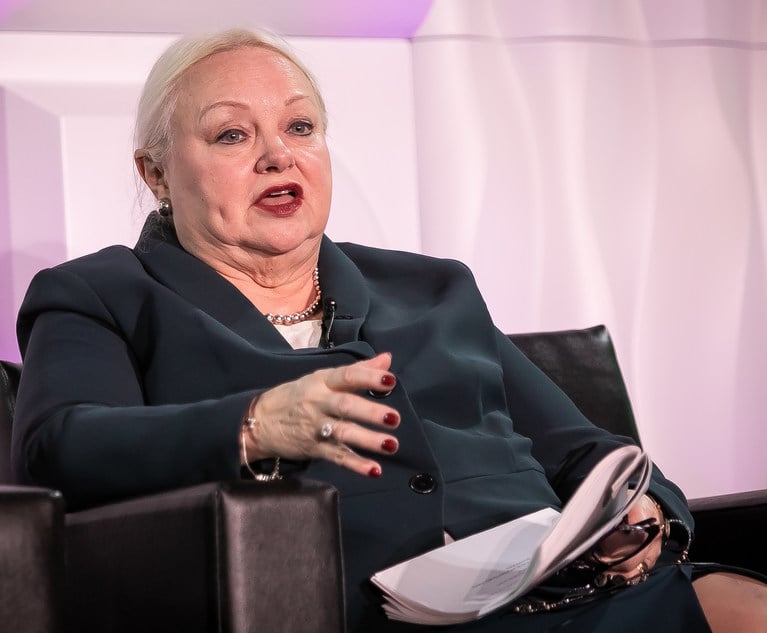 Vasilios J. Kalogredis of Lamb McErlane. Courtesy photo
Vasilios J. Kalogredis of Lamb McErlane. Courtesy photo NJ Supreme Court Rules on Hospital Exclusive Contracts
On April 16, the New Jersey Supreme Court resolved a longstanding open issue as to whether a hospital's bylaws or course of conduct created a contract between the hospital and its medical staff, which in turn would give rise to an implied duty of good faith and fair dealing, and a right to monetary damages for breach of contract.
July 02, 2024 at 11:07 AM
7 minute read
On April 16, the New Jersey Supreme Court resolved a longstanding open issue as to whether a hospital's bylaws or course of conduct created a contract between the hospital and its medical staff, which in turn would give rise to an implied duty of good faith and fair dealing, and a right to monetary damages for breach of contract.
In Comprehensive Neurosurgical v. Valley Hospital, a group of neurosurgeons with longstanding privileges at Valley Hospital sued the hospital after it granted certain exclusive privileges to a competing neurosurgery practice, the Columbia Group, which adversely affected the plaintiff neurosurgeon's ability to practice at the hospital. The plaintiffs brought two claims that were tried in front of the jury: a breach-of-contract claim resulting from the hospital's alleged failure to follow its medical staff bylaws and give the plaintiffs a hearing before granting the exclusive privileges, and a claim for breach of the implied covenant of good faith and fair dealing. The jury found in favor of the implied-covenant claim, and the Appellate Division affirmed on appeal by the hospital. The Supreme Court then held: the hospital's medical staff bylaws were not an underlying contract that could support a claim that the hospital breached the implied covenant of good faith and fair dealing; the hospital's administrative health care decision to award exclusive privileges to the other group of neurosurgeons could not, on its own, support a claim that the hospital breached the implied covenant of good faith and fair dealing; there was a genuine issue of material fact as to whether there was an implied-in-fact contract; there was a genuine issue of material fact as to whether the hospital's alleged bad-faith conduct precluded summary judgment; the jury instructions did not support verdict that the hospital breached the implied covenant of good faith and fair dealing; the jury could have reached a different result if it had been correctly instructed on the claim; and the hospital did not waive attorney-client privileges as to certain e-mails that were inadvertently produced during discovery.
This content has been archived. It is available through our partners, LexisNexis® and Bloomberg Law.
To view this content, please continue to their sites.
Not a Lexis Subscriber?
Subscribe Now
Not a Bloomberg Law Subscriber?
Subscribe Now
NOT FOR REPRINT
© 2025 ALM Global, LLC, All Rights Reserved. Request academic re-use from www.copyright.com. All other uses, submit a request to [email protected]. For more information visit Asset & Logo Licensing.
You Might Like
View All

Longtime Reed Smith Health Care Partner Opts for Solo Practice Over Retirement
3 minute read
Hospital Must Provide Pre-Complaint Discovery in Privacy Breach Case, Pa. Judge Rules
4 minute read
Judge Approves $25M Medical Monitoring Settlement Over Philips CPAP Devices
3 minute readLaw Firms Mentioned
Trending Stories
Who Got The Work
J. Brugh Lower of Gibbons has entered an appearance for industrial equipment supplier Devco Corporation in a pending trademark infringement lawsuit. The suit, accusing the defendant of selling knock-off Graco products, was filed Dec. 18 in New Jersey District Court by Rivkin Radler on behalf of Graco Inc. and Graco Minnesota. The case, assigned to U.S. District Judge Zahid N. Quraishi, is 3:24-cv-11294, Graco Inc. et al v. Devco Corporation.
Who Got The Work
Rebecca Maller-Stein and Kent A. Yalowitz of Arnold & Porter Kaye Scholer have entered their appearances for Hanaco Venture Capital and its executives, Lior Prosor and David Frankel, in a pending securities lawsuit. The action, filed on Dec. 24 in New York Southern District Court by Zell, Aron & Co. on behalf of Goldeneye Advisors, accuses the defendants of negligently and fraudulently managing the plaintiff's $1 million investment. The case, assigned to U.S. District Judge Vernon S. Broderick, is 1:24-cv-09918, Goldeneye Advisors, LLC v. Hanaco Venture Capital, Ltd. et al.
Who Got The Work
Attorneys from A&O Shearman has stepped in as defense counsel for Toronto-Dominion Bank and other defendants in a pending securities class action. The suit, filed Dec. 11 in New York Southern District Court by Bleichmar Fonti & Auld, accuses the defendants of concealing the bank's 'pervasive' deficiencies in regards to its compliance with the Bank Secrecy Act and the quality of its anti-money laundering controls. The case, assigned to U.S. District Judge Arun Subramanian, is 1:24-cv-09445, Gonzalez v. The Toronto-Dominion Bank et al.
Who Got The Work
Crown Castle International, a Pennsylvania company providing shared communications infrastructure, has turned to Luke D. Wolf of Gordon Rees Scully Mansukhani to fend off a pending breach-of-contract lawsuit. The court action, filed Nov. 25 in Michigan Eastern District Court by Hooper Hathaway PC on behalf of The Town Residences LLC, accuses Crown Castle of failing to transfer approximately $30,000 in utility payments from T-Mobile in breach of a roof-top lease and assignment agreement. The case, assigned to U.S. District Judge Susan K. Declercq, is 2:24-cv-13131, The Town Residences LLC v. T-Mobile US, Inc. et al.
Who Got The Work
Wilfred P. Coronato and Daniel M. Schwartz of McCarter & English have stepped in as defense counsel to Electrolux Home Products Inc. in a pending product liability lawsuit. The court action, filed Nov. 26 in New York Eastern District Court by Poulos Lopiccolo PC and Nagel Rice LLP on behalf of David Stern, alleges that the defendant's refrigerators’ drawers and shelving repeatedly break and fall apart within months after purchase. The case, assigned to U.S. District Judge Joan M. Azrack, is 2:24-cv-08204, Stern v. Electrolux Home Products, Inc.
Featured Firms
Law Offices of Gary Martin Hays & Associates, P.C.
(470) 294-1674
Law Offices of Mark E. Salomone
(857) 444-6468
Smith & Hassler
(713) 739-1250





